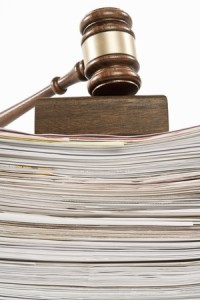A Step-by-Step Guide to Subpoenaing Out of State Witnesses
 Navigating the legal landscape can be complex, especially when it comes to subpoenaing out-of-state witnesses for a court proceeding. Accurate Serve® in Denver, Colorado, is here to guide you through this intricate process. We offer a range of services, including process service, document retrieval, skip tracing, and diligent searches, to clients across the state of Colorado.
Navigating the legal landscape can be complex, especially when it comes to subpoenaing out-of-state witnesses for a court proceeding. Accurate Serve® in Denver, Colorado, is here to guide you through this intricate process. We offer a range of services, including process service, document retrieval, skip tracing, and diligent searches, to clients across the state of Colorado.
Understanding the UIDDA
The Uniform Interstate Depositions and Discovery Act (UIDDA) provides a framework for subpoenaing out-of-state witnesses. This act has been adopted by many states, including Colorado, and serves as a guideline for how to properly issue a subpoena across state lines. Before diving into the specifics, it’s essential to understand that the subpoena power of any particular state court typically ends at that state’s border. Therefore, special procedures must be followed to subpoena a witness residing in another state.
Step 1: Research the Uniform Act Statutes and Case Law
Before initiating the process, it’s crucial to research the Uniform Act statutes and any relevant case law in both the home state and the state where the witness is located. This will give you an understanding of the legal requirements and practical concerns involved. Colorado’s UIDDA laws can be found here.
Step 2: Consult with Local Counsel
If you are unsure about the applicable laws in the state where the witness is located, consider consulting with local counsel. This is important because each state may have unique features in their legal procedures that are not apparent from initial research.
Step 3: Try Asking Nicely First
Before jumping into legal procedures, consider asking the witness voluntarily to testify. Quite often, the witness may agree without the need for a subpoena, saving time and resources for all parties involved.
Step 4: File the Necessary Documents
If the witness does not agree to testify voluntarily, the next step is to file the necessary documents in both State A and State B. This usually involves filing a “Letter of Request” in the court of State A and having it certified. The certified request is then sent to the court in State B, where it serves as prima facie evidence of materiality.
Step 5: Attend the Materiality Hearing
In some cases, a materiality hearing may be required in State B. During this hearing, the court must find that the witness is both material and necessary to grant the summons.
Step 6: Serve the Subpoena
Once the court in State B approves the request, the subpoena can be served to the witness. This is where a process service agency like Accurate Serve® can assist you in ensuring that the subpoena is served correctly and promptly.
Trust Accurate Serve® with Your Out-of-State Subpoenas
Subpoenaing an out-of-state witness involves a series of steps that must be carefully followed to ensure compliance with both federal and state laws. By understanding the UIDDA and collaborating with legal professionals in the relevant states, you can navigate this complex process more efficiently.
If you need assistance with subpoenaing out-of-state witnesses or any other legal support services, feel free to contact Accurate Serve® of Denver at (303) 501-7121 or send us a work request online. We are here to help you every step of the way.
*Information sourced from the National Association of Attorneys General
